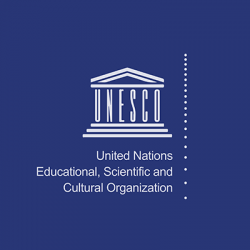Organization

The United Nations Educational, Scientific and Cultural Organization (UNESCO) is an agency of the United Nations aimed at promoting world peace and security through international cooperation in education, the sciences, and culture. It has 193 member states and 11 associate members, as well as partners the nongovernmental, intergovernmental, and private sector.
Headquartered at the World Heritage Centre in Paris, France, UNESCO has 53 regional field offices and 199 national commissions.
UNESCO was founded in 1945 after the Second World War. Its founding mission, which is to advance peace, sustainable development and human rights by facilitating collaboration and dialogue among nations. It pursues this objective through five major program areas: education, natural sciences, social/human sciences, culture and communication/information.
Vision
“Political and economic arrangements of governments are not enough to secure the lasting and sincere support of the peoples. Peace must be founded upon dialogue and mutual understanding. Peace must be built upon the intellectual and moral solidarity of humanity.
In this spirit, UNESCO develops educational tools to help people live as global citizens free of hate and intolerance. UNESCO works so that each child and citizen has access to quality education. By promoting cultural heritage and the equal dignity of all cultures, UNESCO strengthens bonds among nations. UNESCO fosters scientific programmes and policies as platforms for development and cooperation. UNESCO stands up for freedom of expression, as a fundamental right and a key condition for democracy and development. Serving as a laboratory of ideas, UNESCO helps countries adopt international standards and manages programmes that foster the free flow of ideas and knowledge sharing.
UNESCO's founding vision was born in response to a world war that was marked by racist and anti-Semitic violence. Seventy years on and many liberation struggles later, UNESCO’s mandate is as relevant as ever. Cultural diversity is under attack and new forms of intolerance, rejection of scientific facts and threats to freedom of expression challenge peace and human rights. In response, UNESCO's duty remains to reaffirm the humanist missions of education, science and culture”.
UNESCO has a unique role to play in strengthening the foundations of lasting peace and equitable and sustainable development. Advancing cooperation in education, the sciences, culture, communication and information holds strategic stakes at a time when societies across the world face the rising pressures of change and the international community faces new challenges.
As a focal point for world culture and science, UNESCO's activities have broadened over the years to include assisting in the translating and disseminating of world literature, establishing international cooperation agreements to secure World Heritage Sites of cultural and natural importance, defending human rights, bridging the worldwide digital divide, and creating inclusive knowledge societies through information and communication.[10] UNESCO has launched several initiatives and global movements, such as Education For All, to further advance its core objectives.
UNESCO is governed by the General Conference, composed of member states and associate members, which meets biannually to set the agency's programmes and the budget. It also elects members of the Executive Board, which manages UNESCO's work, and appoints every four years Director-General, who serves as UNESCO's chief administrator.
